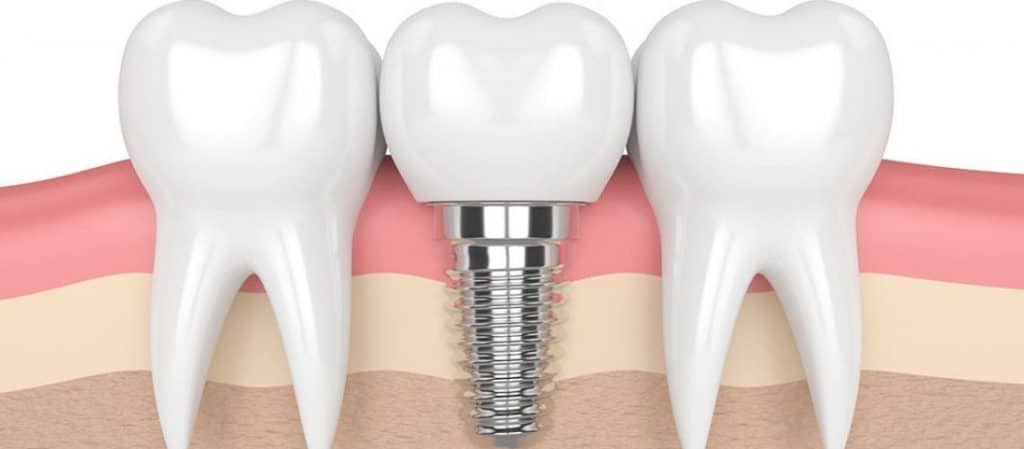When faced with a tooth that requires significant intervention due to decay, damage, or infection, the decision between a root canal and a dental implant can be challenging. Both procedures aim to address dental issues, but they differ in their approach and long-term implications.
Dental issues like persistent tooth pain, inflammation, or sensitivity to hot or cold foods may lead you to seek professional dental care. In such cases, your dentist will carefully assess your condition and recommend treatments like root canals or dental implants.
Dental implants and root canals are different therapies for the same dental issue. However, their success rates are comparable. Since you have two treatment options for the same troublesome teeth in your mouth, deciding which one is best for you involves considering several factors. To make an informed choice, let’s study each dental treatment carefully.
Nature of the Tooth Damage:
- Root Canal:
- Ideal for saving a natural tooth with damaged or infected pulp.
- Dental Implant:
- Suitable for cases where the tooth is severely damaged or cannot be saved.
Preservation of Natural Teeth:
- Root Canal:
- Preserves the natural tooth structure, maintaining its function and appearance.
- Dental Implant:
- Involves replacing the natural tooth with an artificial implant, as the natural tooth is extracted.
Procedure Complexity:
- Root Canal:
- Generally a less invasive and quicker procedure compared to dental implant surgery.
- Dental Implant:
- Involves a surgical procedure to place the implant into the jawbone, followed by a healing period before attaching the artificial tooth.
Time Considerations:
- Root Canal:
- Completed in one or two appointments, providing a quicker solution.
- Dental Implant:
- Requires multiple appointments over several months, including healing time for the implant to integrate with the jawbone.
Cost Factors:
- Root Canal:
- Typically more cost-effective than dental implants.
- Dental Implant:
- Can be a more significant upfront investment, but long-term benefits may outweigh the initial cost.
Longevity and Durability:
- Root Canal:
- Success rates are high, and a well-maintained tooth can last a lifetime.
- Dental Implant:
- Known for durability, with the potential to last a lifetime with proper care.
Aesthetic Considerations:
- Root Canal:
- Preserves the natural appearance of the tooth.
- Dental Implant:
- Mimics the appearance and function of a natural tooth but may involve additional steps for fabrication and placement.
Bone Health:
- Root Canal:
- Does not impact the jawbone as the natural tooth is preserved.
- Dental Implant:
- Stimulates the jawbone, promoting better bone health over time.
Patient Preferences:
- Root Canal:
- Appeals to those who prefer maintaining their natural teeth.
- Dental Implant:
- Attractive to individuals who prioritize a tooth replacement that closely resembles a natural tooth.
Treatment Success Rate:
Root Canal: – Generally high success rates, especially with proper oral hygiene.
Dental Implant: – Success rates are also high, but patient commitment to oral care is crucial for long-term success.
Ultimately, the decision between a root canal and a dental implant depends on factors such as the severity of tooth damage, patient preferences, and budget considerations. Consulting with a dentist to assess your specific situation and discuss the pros and cons of each option will help guide you towards the choice that aligns best with your oral health goals.
What Is the Root Canal Procedure?
Dental issues like persistent tooth pain, inflammation, or sensitivity to hot or cold foods may lead you to seek professional dental care. In such cases, your dentist will carefully assess your condition and recommend treatments like root canals or dental implants.
Dental implants and root canals are different therapies for the same dental issue. However, their success rates are comparable. Since you have two treatment options for the same troublesome teeth in your mouth, deciding which one is best for you involves considering several factors. To make an informed choice, let’s study each dental treatment carefully.
Root Canal Procedure Steps
A root canal treatment typically involves the following steps:
- The dentist examines the tooth thoroughly by taking X-rays to determine the extent of infection or damage to the pulp
- The area around the affected tooth is numbed to ensure the patient’s comfort during the procedure.
- A rubber dam is placed around the tooth to keep it dry and free from saliva.
- The dentist drills a small access hole into the tooth’s crown to reach the pulp chamber.
- The infected or damaged pulp is removed from the pulp chamber and root canals using specialised instruments. The space is cleaned, shaped, and disinfected.
- After cleaning, the empty pulp chamber and canals are filled with a biocompatible material, typically a rubber-like substance called gutta-percha, to seal the space.
- The access opening in the tooth is sealed with a temporary or permanent filling.
- Mostly, a crown is placed on the treated tooth to restore strength and functionality.

What Are Dental Implants?
Dental implants are artificial tooth roots surgically placed into the jawbone to support replacement teeth, providing a sturdy foundation for crowns, bridges, or dentures and restoring both function and aesthetics to the smile.
Your severely decayed natural tooth is removed, and a metal post or implant is placed in your jawbone. In contrast to root canal therapy, this treatment involves removing teeth that are broken or rotten rather than restoring them. Then, to help you chew normally, your dentist will screw on a dental crown.
Dental Implant Procedure Steps
The dental implant procedure involves several key steps:
- The dentist examines your tooth to determine your suitability for dental implants.
- Based on your oral health and requirements, a customised treatment plan is created, outlining the number of implants required and their precise placement.
- Local anaesthesia is administered to numb the surgical area, ensuring you are comfortable during the procedure.
- The dentist or oral surgeon surgically places the implant(s) into the jawbone, precisely positioning them as artificial tooth roots.
- Over the next few months, the implant(s) integrate with the surrounding bone through osseointegration, ensuring stability and strength.
- Once osseointegration is complete, a small connector called an abutment is attached to the implant(s) to serve as a foundation for the prosthetic tooth.
- Impression of your teeth and gums are taken to create a custom prosthetic tooth, such as a crown, bridge, or denture.
- The final prosthetic tooth is securely attached to the abutment, restoring function and aesthetics.
Root Canal Advantages
The following are some benefits of having a root canal:
- It safeguards natural teeth: In contrast to a dental implant, a root canal preserves your natural tooth so you can continue to smile naturally. However, you might need a crown to stop the degradation. Your dentist can then affix the crown to the natural tooth structure.
- The process is quicker: It takes more time to execute a dental implant than a root canal. Typically, the process takes one or two appointments to complete. If required, you will have to wait a little while to get a permanent crown.
- Cost-effective alternative: A root canal may cost between $300 and $2,500, which is a substantial advantage compared to dental implants that cost between $3,000 and $4,500. However, it may be difficult to obtain coverage for implants, although insurance policies typically cover crowns and root canals.
- Process of painless treatment: The root canal operation has a speedy recovery and is painless. Since the dentist won’t be extracting your teeth during the procedure, you won’t have to worry about feeling any pain. In addition, you won’t need to wait for your gums to heal after an extraction.
Dental Implant Advantages
Some elements that can influence the choice between a dental implant and a root canal include:
- Beauty Appeal: A dental implant can still provide great aesthetics even if you lose your natural tooth. It’s because your dentist can make a tooth that matches the colour of your natural teeth and enhances your characteristics.
- Higher Functionality: A dental implant may provide you with high levels of functionality akin to what your natural teeth would provide. You won’t have any trouble speaking or eating, for example. However, dental implants may be more functional than natural teeth if they are positioned correctly.
- It’s Durable: An implant is your best choice if longevity is your main concern because it can last longer than a root canal. It rarely fails.
Root Canal Disadvantages
A root canal may have additional disadvantages, such as:
- A badly decaying tooth cannot have a root canal.: If a tooth has significant decay or damage, your dentist cannot salvage it with a root canal. Furthermore, there’s a danger that the procedure won’t save the tooth you want.
- Process difficulties could result in tooth loss: After undergoing the therapy process, issues may arise. For instance, an abscess could develop if the infected pulp is not correctly removed. Tooth extraction could result from the abscess.
- The price without insurance can be higher: Even while root canals are less expensive than implants, they can still be more costly if you don’t have good insurance coverage. Therefore, before making a decision, you can consult your insurance provider.
Dental Implant Disadvantages
When selecting a dental implant, it will be of great help if you can consider the following the following:
- Your Insurance Might Not Cover Implants: Dental insurance typically does not cover implants. As a result, the price of one tooth might be between $3,000 and $4,500. As a result, it can be out of reach for some people.
- Demands a Time-consuming and Extensive Treatment Process: A dental implant requires an extensive and invasive operation. Your dentist will first remove the damaged natural tooth, giving the gums time to recover. Then, they will fix the implants, place the artificial teeth, and monitor the healing process. The jawbone will take time to prepare itself for the treatment.
- Prolonged Recovery Period: You’ll have to wait between treatment rounds while your mouth heals.
How to Choose Between Dental Implants and Root Canals?
You can choose an implant if your tooth has considerable deterioration, and you are willing to pay more for treatment. But a root canal may be less invasive and more affordable if you want to save your tooth.
Nevertheless, the cosmetic dentist at Bay Street Dental Group can help whether you choose a root canal or an implant. Dial (03) 9646 2577 or email us at [email protected] for additional details.
Frequently Asked Questions (FAQs) about Root Canal vs. Dental Implant:
Can a dental implant replace a root canal?
Yes, a root canal can be replaced by a dental implant. Your dentist may advise you to have the tooth extracted and replaced with an implant if your root canal fails. The replacement, however, is determined by several variables, including the chance of success, insurance coverage, affordability, dental health, general physical condition, etc.
Which surgery hurts more—a root canal or an implant?
It’s a common misconception that getting a root canal hurts. However, it’s not always the case. It used to be an unpleasant procedure at that time when the oral anaesthetic was a less dependable alternative and frequently not even a choice. However, sedation dentistry and other modern dental methods have made the treatment process painless and comfortable.
Today, neither a root canal procedure nor a dental implant causes excruciating pain or suffering while being treated. When the anaesthetic wears off after a root canal, though, you may experience a little discomfort. However, it will go in a day or two.
On the other hand, dental implant surgery is less uncomfortable. However, you may also experience pain if you have a recent tooth extraction.
Which procedure takes longer, a root canal or a dental implant?
A dental implant procedure typically takes longer than a root canal. While a root canal can usually be completed in one or two appointments over a few weeks, a dental implant involves multiple stages and several months to allow for healing and integration with the jawbone before the final restoration can be attached. The exact duration of both procedures depends on individual factors and case complexity, but dental implants generally require a more extended treatment timeline.
Does insurance cover root canals and dental implants?
Dental insurance coverage varies. Root canals are often covered, but dental implants may have limited coverage. Checking with your insurance provider is advisable.
Are there any age restrictions for root canals or dental implants?
There are generally no age restrictions for either procedure. The decision is based on individual oral health and overall well-being.
Which option is more cost-effective?
Root canals are generally more cost-effective than dental implants. However, long-term considerations and benefits should be taken into account.
Ultimately, the decision between a root canal and a dental implant depends on factors such as the severity of tooth damage, patient preferences, and budget considerations. Consulting with a dentist Port Melbourne to assess your specific situation and discuss the pros and cons of each option will help guide you towards the choice that aligns best with your oral health goals.












